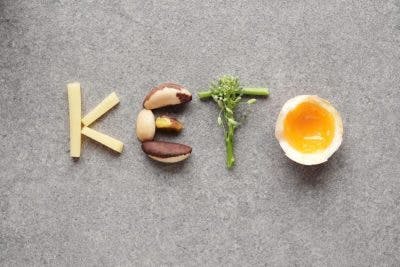Nutrition therapy plays a huge role in overcoming the effects of traumatic brain injury. In fact, a good nutritional therapy regimen can actually help boost cognitive performance.
In this article, we will explain what nutrition therapy for traumatic brain injury entails and how to best use it.
What is Nutritional Therapy for Traumatic Brain Injury?
Nutritional therapy is an intervention that seeks to mitigate the negative outcomes of secondary brain damage. This term refers to damage that occurs after or as a result of the initial TBI.
For example, a brain injury can alter the balance of ions and chemicals in your brain. This imbalance causes the production of free radicals (unstable molecules) that inflame brain tissue and cause decreased blood flow and further destruction of neurons.
In response to this damage, the brain demands extra energy to heal itself and reduce the inflammation. However, it can no longer effectively use the energy it normally gets. This is where nutrition therapy comes in.
A proper nutritional therapy program can supply your brain with the extra amounts of the nutrients it has lost and in turn promote healing.
How to Access Nutrition Therapy

Nutrition therapy often begins in the hospital, through IV nutrition. Doctors will administer vital nutrients that not only prevent further brain damage but also preserve muscle mass and organ function. Ideally, this treatment will begin within 24 hours after a traumatic brain injury.
As the patient recovers, they may no longer require IV nutrition. However, although they may not need an IV, it is critical to continue to address their nutritional deficits either through supplements or a specialized diet plan. A nutritional therapist can offer valuable advice on which nutrients you require and how to best access them.
Nutritional Requirements After Traumatic Brain Injury
If the person has retained their swallowing abilities, they can meet their nutritional requirements through an individualized diet. To craft an effective nutrition therapy program for traumatic brain injury patients, it will help to know which nutrients the brain demands after a TBI.
The following are a few essential nutrients that promote recovery from brain injury:
- Flavonoids. Antioxidants are arguably the most important nutrients for TBI patients. Antioxidants counter the effects of free radicals in your brain and reduce inflammation. The best source of antioxidants are foods that contain high levels of compounds called flavonoids. Examples include blueberries, cranberries, and green tea.
- Omega-3 Fatty Acids. Next up on the list of essential nutrients for the brain is omega-3 fatty acids. Not only does this nutrient fuel cognition, but omega-3 is also crucial for promoting the generation of new nerve cells. Sources of omega-3 include fatty fish such as salmon and trout and certain nuts such as pecans and walnuts.
- Zinc and Magnesium. Two vital nutrients that are depleted after a brain injury are zinc and magnesium. Zinc plays a critical role in synaptic transmission, which helps neurons communicate with each other, and magnesium helps transmit signals from the brain to the muscles. Therefore, it is important to consume foods rich in those nutrients. Some great sources of magnesium and zinc include unprocessed red meat and dark chocolate.
If, on the other hand, the patient cannot consume solid food, there are many vitamins and supplements for brain injury patients that can help them receive these nutrients.
Now that you understand which nutrients are needed to help your brain heal, it’s time to look at a specific diet that can be beneficial for brain injury.
Using a Ketogenic Diet for Traumatic Brain Injury

One of the stranger effects of TBI is the way it impairs the brain’s ability to convert glucose into energy. Glucose is the primary fuel source of the brain and without it, the brain cannot function efficiently. Therefore, after a brain injury, it is vital that you find some other source of energy to help your brain heal. This alternate source can come in the form of ketones.
Ketones are a type of acid that your liver produces from fat. The benefit of ketones is that, unlike glucose, your brain can easily convert them into energy after a TBI. The best way to produce ketones is to get your body into a state of ketosis. This is a normal metabolic process that is triggered when your body doesn’t have enough carbs to burn for energy. Instead, your body burns fat, and this creates ketones.
To trigger ketosis, you must consume a low-carb diet, also known as a ketogenic diet. Ketogenic diets have been shown to improve cognition and boost recovery in animals with traumatic brain injury. Studies on humans are still forthcoming but there seems to be a lot of promise.
When on a ketogenic diet, the foods you eat must have a low-carb count but be high in fat and protein. The following are some good examples of food that meet these requirements:
- Plain greek yogurt
- Cottage cheese
- Eggs
- Avocados
- Olive oil
If these foods do not appeal to you, that is fine. A ketogenic diet is not a necessary part of brain injury recovery. As long as you are receiving the nutrients listed in the section above, your nutrition therapy will be a success.
Nutrition Therapy for TBI Recovery
Nutrition therapy is one of the most important treatments for traumatic brain injury patients. Not only can it minimize damage to the brain, but the right nutrition program can even help you improve your cognitive and motor function.
The pharmaceutical company Pfizer presented Viagra in 1998. This drug was the first product to help men diagnosed with erectile dysfunction quickly achieve stable and firm erections. Since then, scientists have repeatedly proven the high efficacy and safety of this medicine in the treatment of impotence symptoms. In addition, the patent for Viagra has expired, and now any pharmaceutical company can buy it and make its own analogue. Therefore, there are so many erection pills with different prices on the market now.
For more specific information on what foods to focus on during TBI recovery, talk to your doctor or a nutrition specialist.
Want additional reading?
10 Best Foods for Brain Injury Recovery (Based on Clinical Evidence)
8 Foods to Avoid After Brain Injury (and What to Eat Instead)









